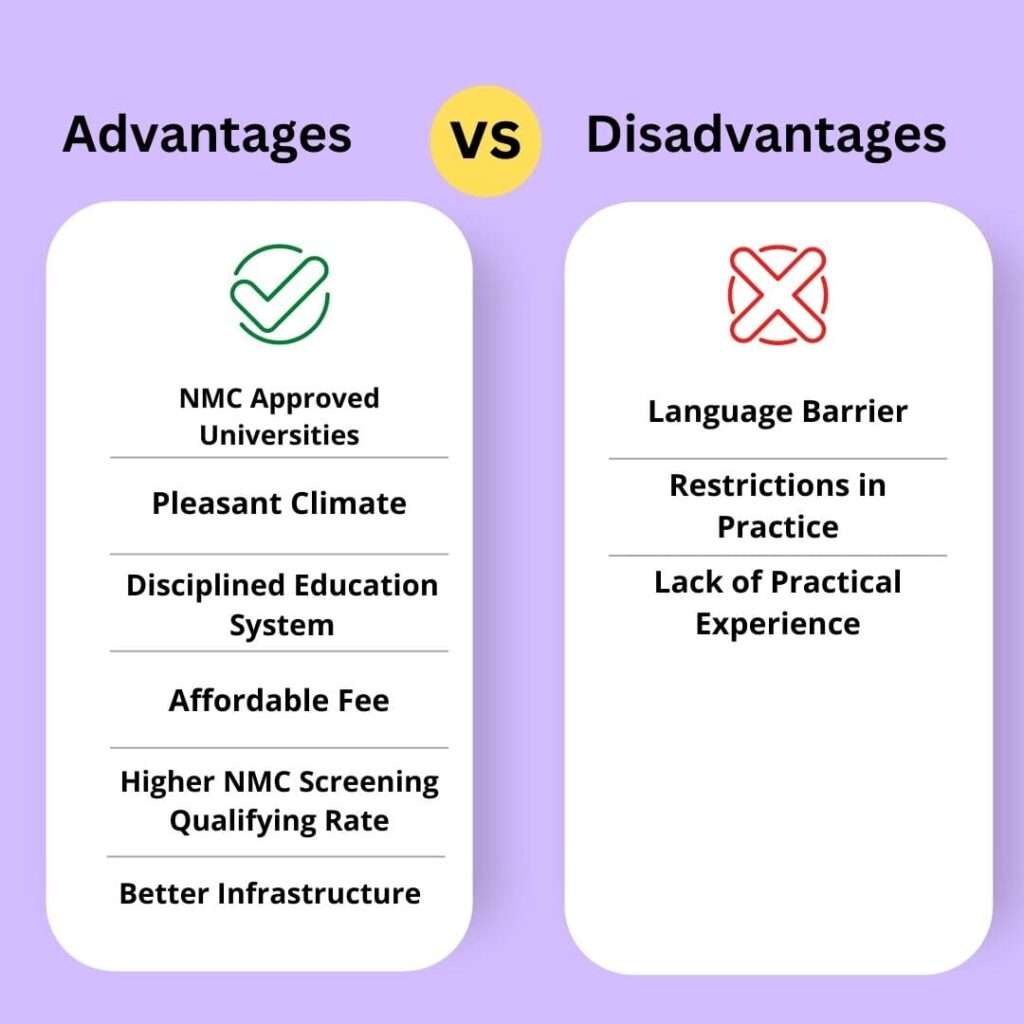
Disadvantages of studying MBBS in Nepal
Studying MBBS (Bachelor of Medicine, Bachelor of Surgery) in Nepal can offer certain advantages, such as Lower fees in Nepal compared to some other countries, cultural diversity, and exposure to a different healthcare system. However, there are also some disadvantages associated with studying MBBS in Nepal.
Limited infrastructure and resources:
While medical education in Nepal is improving, there may still be limitations in terms of infrastructure, equipment, and resources. Some medical colleges may lack the modern facilities and advanced technology necessary for comprehensive medical training.
Quality of education may vary:
Medical schools in Nepal offer a range of educational standards. While some universities maintain excellent standards, it may be difficult for others to offer a challenging and modern curriculum. It’s important to thoroughly research and choose a reputable institution with a good track record.
Recognition and accreditation:
Not all medical colleges in Nepal have recognition and accreditation from international medical bodies or regulatory authorities. It’s crucial to ensure that the college you choose is recognized by the Medical Council of your home country or other relevant organizations, as this can impact your future career prospects and your ability to practice medicine in different countries.
Language barrier:
The medium of instruction in many Nepalese medical colleges is Nepali. If you’re not fluent in the language, you may face difficulties in understanding lectures, communicating with patients during clinical rotations, and even studying from local textbooks.
Limited clinical exposure:
Depending on the college and its affiliations, the availability and quality of clinical exposure may vary. Some medical colleges may struggle to provide sufficient opportunities for hands-on training, practical skills development, and exposure to diverse medical cases. This can impact the overall learning experience and readiness for clinical practice.
Competitiveness and limited seats:
Medical colleges in Nepal can be highly competitive, and the number of available seats may be limited. This means that admission can be challenging, particularly for international students. The selection process may be stringent, and meeting the eligibility criteria for MBBS in other countries may not guarantee a seat.
Cultural and environmental adjustment:
Moving to Nepal for your medical education may require significant cultural and environmental adjustment, especially if you come from a different country with distinct traditions, language, and climate. Adapting to a new environment can be challenging and may affect your overall experience and well-being.
It’s important to note that while these disadvantages exist, they may not apply universally to all medical colleges in Nepal. It’s crucial to thoroughly research and choose a reputable institution that suits your educational needs and career goals.
Additionally, consulting with current or former students who have studied MBBS in Nepal can provide valuable insights into the specific advantages and disadvantages of a particular institution.






